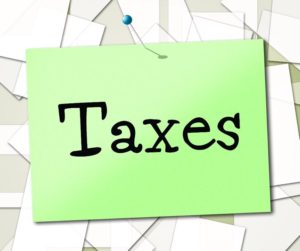 On 26 February 2015, the Government introduced the Taxation (Annual Rates for 2015 – 16, Research and Development, and Remedial Matters) Bill (the Bill). It is the first sizeable bill to introduce amendments to the tax rules since November 2013. The Bill contains changes intended to address tax impediments to research and development (R&D) and innovation, and to clarify goods and services tax (GST) rules for body corporates.
On 26 February 2015, the Government introduced the Taxation (Annual Rates for 2015 – 16, Research and Development, and Remedial Matters) Bill (the Bill). It is the first sizeable bill to introduce amendments to the tax rules since November 2013. The Bill contains changes intended to address tax impediments to research and development (R&D) and innovation, and to clarify goods and services tax (GST) rules for body corporates.
This article provides a brief summary of the key changes proposed by the Bill.
R&D tax losses
The Bill includes legislation to allow tax loss-making R&D companies to “cash out” their tax losses from R&D expenditure. The main eligibility requirements are that the company must be a loss-making company resident in New Zealand, with a sufficient proportion of expenditure on R&D. Companies that qualify will be able to receive 28% (the current company tax rate) of their qualifying expenditure as a cash refund from IRD, capped at $140,000 for the 2015 – 16 year. The threshold increases by $84,000 per year, over the next five years to $560,000.
Black hole expenditure and intangible assets
The Bill amends the rules relating to “black hole expenditure” (business expenditure that is not immediately deductible for income tax purposes and cannot be deducted over time as depreciation). The proposals are targeted primarily at black hole R&D expenditure.
There are a number of anomalies under the current rules which are to be fixed. Intangible assets are generally able to be amortised if they have a defined useful life (such as a patent). If costs are incurred to develop an asset with no defined life (such as a trademark) and that asset is written off, no tax deduction is available. In this situation a tax deduction is to be allowed.
Also, there is some uncertainty around what costs can be included when amortising intangible assets, e.g. a patent versus the underlying knowledge covered by the patent. The rules will be amended to extend an asset’s “cost” to include the underlying item of depreciable intangible property.
The list of intangible property that is able to be amortised will be amended to include a design registration, a design registration application and a copyright in an artistic work that has been applied industrially.
GST and bodies corporate
There has been considerable uncertainty and media coverage in recent years regarding the GST position of bodies corporate. The Bill proposes to clarify the situation by amending the GST rules to reflect that a service provided by a body corporate to a member is a supply that is subject to GST. However, those supplies are excluded when determining whether the total value of the supplies made by a body corporate exceeds the compulsory GST registration threshold. This effectively gives bodies corporate the option of registering for GST. There are a number of rules being introduced to ensure the rules aren’t ‘gamed’ or taken advantage of – these should be examined in detail before a position is taken.

